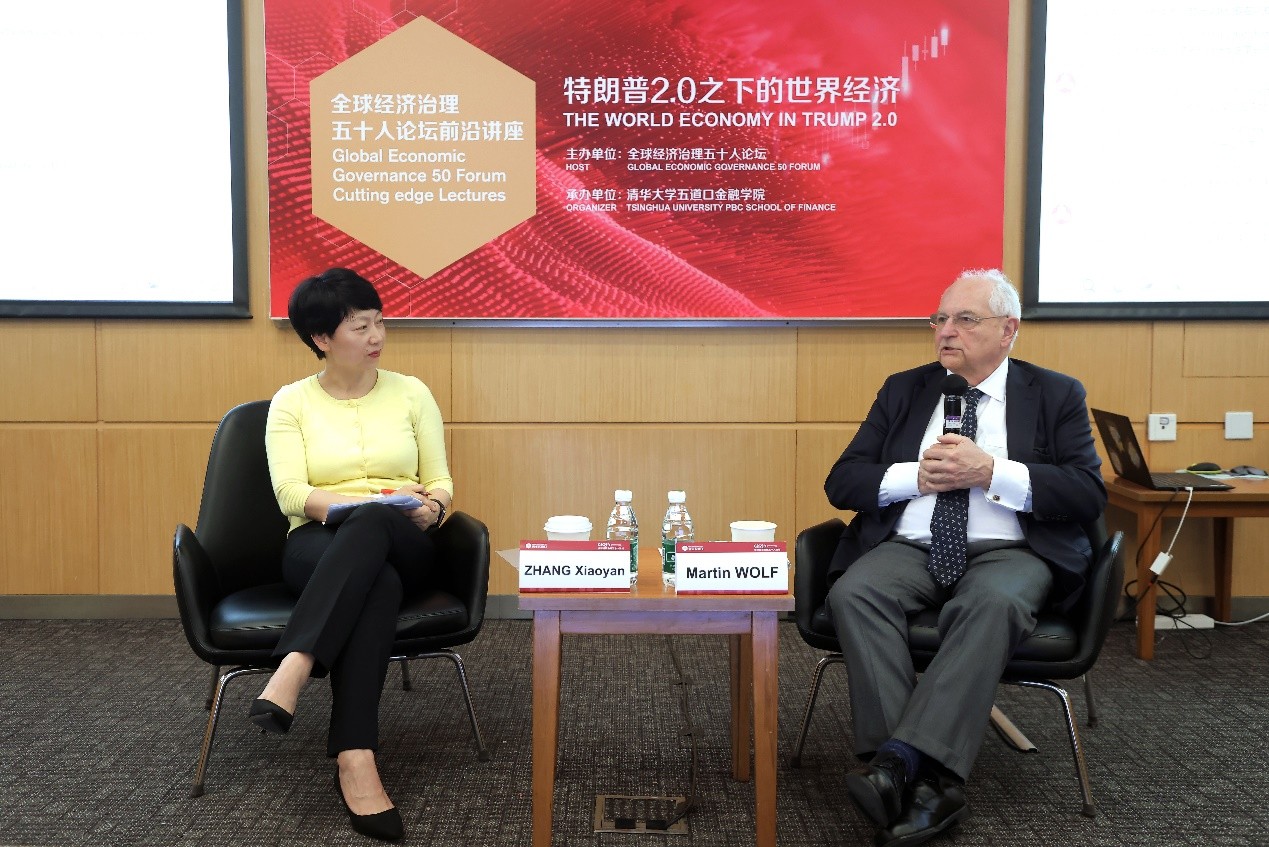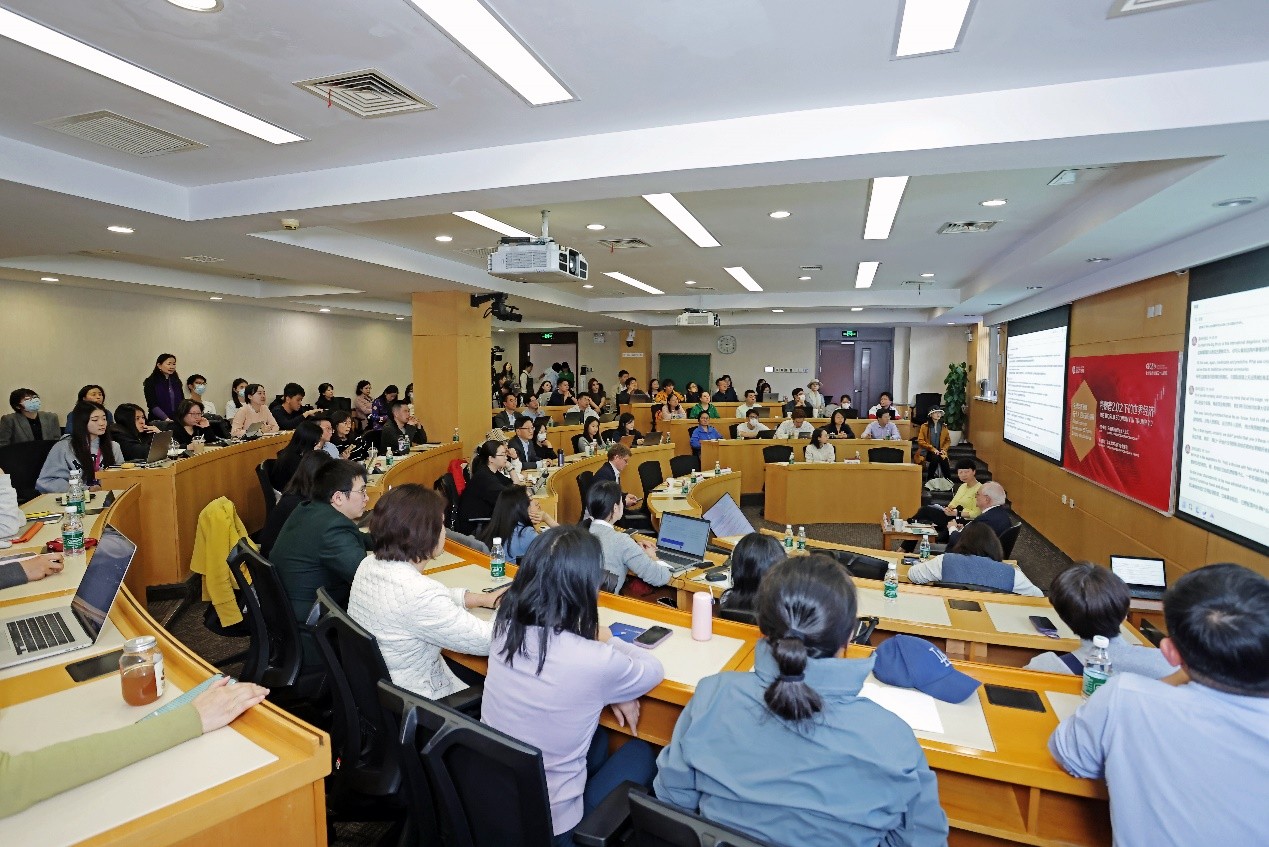On March 21, Martin Wolf, Associate Editor, and Chief Economics Commentator at the Financial Times, joined the Frontier Lecture Series of the Global Economic Governance 50 Forum for a compelling discussion with Zhang Xiaoyan, Associate Dean and Chair Professor at PBC School of Finance, Tsinghua University. The conversation focused on the global economy under "Trump 2.0," attracting over a hundred attendees, including students, alumni, partners of the PBC School of Finance, and industry professionals.

Pictured: Zhang Xiaoyan in conversation with Martin Wolf
During the discussion, Martin Wolf pointed out that the global economy in the Trump 2.0 era faces significant uncertainty. He emphasized that Trump’s policies are revolutionary and that his adjustments to domestic and foreign policies will have profound implications for the global economy. “Trump 2.0 marks a revolutionary moment. The United States remains the most economically and politically influential country in the world, and his policies will not only affect the U.S. but also have a major impact on the global economic landscape.”
Wolf further analyzed the predictability and unpredictability of Trump’s policies. He argued that challenges to the traditional international order—such as withdrawing from the WTO and NATO—are foreseeable. However, some of Trump’s actions in international affairs, such as imposing high tariffs on Canada, have exceeded many expectations.
When discussing the possibility of an economic recession, Wolf noted that despite the uncertainties, he does not see clear signs of an imminent recession. He stated, “Trade wars and policy uncertainty may slow economic growth, but they are unlikely to trigger a full-scale recession.”
Regarding the prospects for China-Europe cooperation, Wolf observed that Europe is reassessing its international economic relations, particularly in light of tensions with the United States. He emphasized the significance of China-Europe collaboration in the evolving global governance, while also acknowledging internal divisions within Europe on this issue. “Europe will inevitably seek a stronger and more cooperative relationship with China than it appeared to a year or two ago.”
During the interactive session, enthusiastic questions were raised by students and alumni. Wolf shared his views on artificial intelligence (AI), particularly its impact on the media industry. He asserted that AI will profoundly transform news gathering and writing processes, but the role of human journalists remains irreplaceable. “AI will be a highly useful tool, but the judgment and analytical capabilities of human journalists cannot be replaced by AI.”

Pictured: The lecture in progress
This event was hosted by the Global Economic Governance 50 Forum and organized by the PBC School of Finance at Tsinghua University.
The Global Economic Governance 50 Forum is a high-level think tank initiated by Zhu Min, former Deputy Governor of the People's Bank of China and former Deputy Managing Director of the IMF, and hosted by the PBC School of Finance at Tsinghua University. The Forum is dedicated to independent, forward-looking, and academically supported policy research on improving and reforming the global economic governance system, offering solutions to enhance China’s participation in global economic and financial governance.